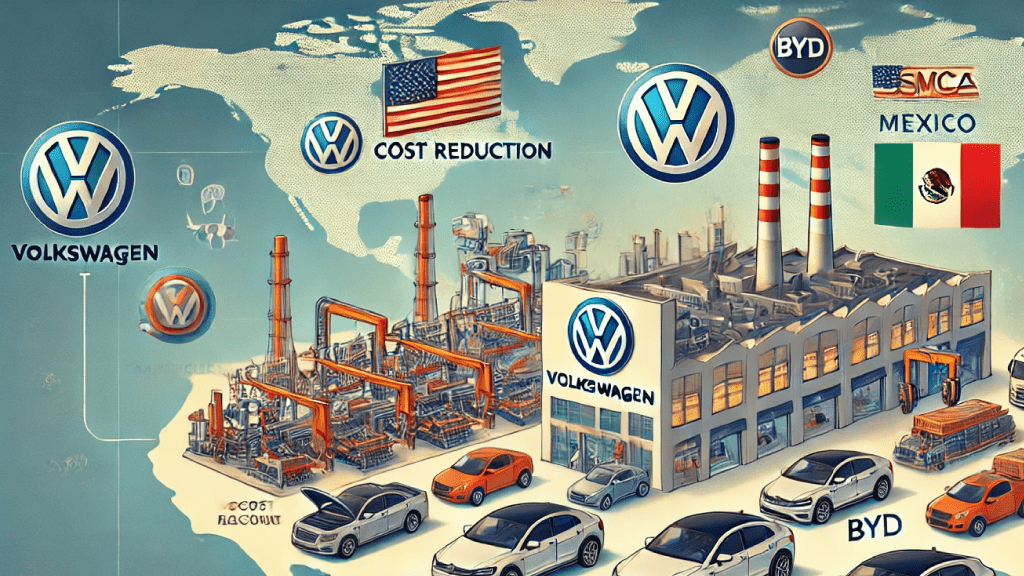Continental Drives Opportunities in Mexico with Cost Reduction and Strategic Expansion

Continental (CONG.DE) has reported better-than-expected results, anticipating an even stronger second half of the year thanks to ongoing cost-cutting and restructuring measures.
The company adjusted its sales outlook to a range of EUR40 billion to EUR42 billion (1Q4Q45.87 billion), expecting to reach the lower end of that range. However, stronger margins are anticipated in the coming quarters due to planned cost cuts of around €100 million.
Despite this positive outlook, executives have warned of slower demand affecting sales, with CFO Olaf Schick describing the European market as "a bit dramatic" and highlighting slower-than-expected growth in China. To mitigate these challenges, Continental seeks to increase its proportion of sales to local Chinese customers, following a broader industry trend to protect business in the country against potential trade barriers.
The profit margins of Continental have improved across all divisions, with adjusted earnings before interest and taxes up 40.6% from last year to €704 million ($768.35 million). Despite this, the company has lowered its sales outlook and cut its automotive margin forecast to 2.5-3.5% from 3-4% previously, citing weak demand in Europe. Citi analysts noted that the improvement in the second quarter is "positive" and that the adjusted outlook for 2024 was "not as bad as feared." "This could support promising early signs for 2025," Citi analysts said, pointing to additional cost-cutting measures expected next year. Continental shares were up 5.3% from Tuesday's close, leading Germany's blue-chip index, the DAX (.GDAXI).
The auto parts supplier has faced significant challenges in cost control and restructuring in the face of a drop in its market capitalization and weak demand for cars. Its share price has halved since June 2021, bringing its market value to 11.3 billion euros. Wednesday's results were a "mix of some rays of hope," according to analysts at Bernstein Research, pointing to a high order intake in the automotive division. Continental has also announced that it is considering a spin-off and subsequent listing of its automotive unit on the Frankfurt stock exchange, with an executive board decision expected in the fourth quarter. Such a move would halve the revenues of Continental and would separate the automotive side of its ContiTech tire and plastics business. For months, the company has hinted at major changes in the division, whose portfolio ranges from brakes to sensors and assistance systems, after several years of low profitability. However, CEO Nikolai Setzer had indicated in December that the automotive business would remain within the company and that only the user experience unit would become independent.
The strengthening of Continental and their expansion plans can have a significant positive impact on the Mexican economy. By taking advantage of the favorable environment created by the T-MEC and Mexico's competitive advantages, local companies have an excellent opportunity to integrate into Mexico's global value chain. Continental. This scenario will not only benefit Mexican companies and workers, but will also strengthen the country's automotive sector and its position in the global market.
Continental's cost-cutting measures may generate new business opportunities in Mexico, especially in areas such as the manufacturing of automotive parts and components. Mexican companies can take advantage of this moment to offer competitive products and services that align with Continental's restructuring needs. In addition, Continental's trend to increase its market share in China could open doors for Mexican companies to establish commercial ties and strategic partnerships with the German company.
Mexico, with its competitive advantages such as lower labor costs and strategic geographic proximity to the United States, remains a key player in the global automotive industry. This privileged location facilitates logistics and reduces transportation costs, which is attractive to multinational companies such as Continental. In addition, the Mexican automotive industry stands out for its high specialization and quality in the manufacture of auto parts, consolidating its position as a reliable supplier in the global supply chain.
The favorable environment created by the Treaty between Mexico, the United States and Canada (T-MEC) has established a stable and beneficial trade framework that promotes investment and strengthens regional economic integration.
This agreement provides legal certainty and facilitates trade, boosting the growth of the automotive sector in Mexico.
Mexican companies have an excellent opportunity to further integrate into the global value chain. They can take advantage of the restructuring of giants such as Continental to offer high-quality components and services, increasing their share of the global market. The strengthening of the automotive sector in Mexico can not only stimulate domestic demand for vehicles and auto parts, but also create new business opportunities. Forming strategic alliances with global companies can facilitate access to advanced technologies and best practices, thereby increasing the competitiveness of Mexican companies.
However, there are challenges that must be addressed. The Mexican economy and its automotive industry are highly dependent on external demand, particularly from the United States and China. This dependence can expose Mexican companies to global economic fluctuations. In addition, despite improvements, there are still challenges in logistics and transportation infrastructure that can affect efficiency and operating costs. The complexity and slowness of some regulatory processes can also delay investments and expansions in the Mexican market.
External threats, such as fluctuations in global demand, represent a significant risk. The economic slowdown in Europe and China may reduce demand for auto parts and components produced in Mexico. In addition, the imposition of new trade barriers or changes in tariff policies may negatively affect international trade and the competitiveness of Mexican exports. In addition, other countries with competitive production costs may attract investment that could otherwise be directed to Mexico, affecting the growth of the Mexican automotive sector.
Continental's consolidation and expansion plans represent a significant opportunity for the Mexican economy, particularly in the automotive sector. Local companies should be attentive and prepared to take advantage of this moment, strengthening their capabilities and seeking mutually beneficial synergies within the framework of the T-MEC. Implementing Continental-style cost reduction and operational efficiency strategies can help Mexican companies improve their competitiveness and ensure sustainable growth in the global market. Leveraging strengths and opportunities, while mitigating weaknesses and threats, is crucial for Mexico to continue to advance its economic development and consolidate its position as a key player in the global automotive industry.
Collaboration: Editorial Auge





